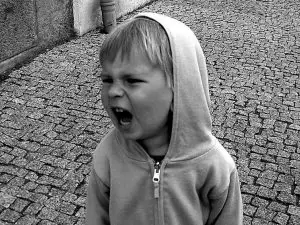“Don’t demand respect as a parent. Demand civility, and insist on honesty. But respect is something you must earn with kids as well aswith adults.” William Attwood
“Good discipline requires time. When we have no time to give our children, or no time we are willing to give, we don’t even observe them closely enough to become aware of their need for our disciplinary assistance, is expressed subtly.” M. Scott Peck
Discipline is not what anybody enjoys doing. A boss would rather compliment a worker than have to explain the things that are wrong with the work. When it comes to raising a family, it is key to positive growth and maturity. There is so much talk and most tactics can appear to be either overwhelming or so intricate that one must consult a rule book.
All kids mess up. As a parent it is hard to set the guidelines for children. Not all children are of the same manner and not all the same ploys work for the individual child. The only method I found that works for all of the kids is love. It probably sounds silly but after explaining my thoughts, and attempting it, you might find the benefits of it. Sometimes our hard work is only seen in the finished product, which takes years to accomplish, when we are talking about raising children.
If simply stated, it takes a lot of time, determination, consistency and effort. We love our kids but they can be difficult and trying, especially when we are in a bad mood, or had a horrible day ourselves. Discipline requires effort and consistency. We can’t preach how to behave one minute, and then make disobedience acceptable the next minute. If we don’t want children jumping on beds, then that’s the regulation. If we allow it to happen when our children have friends over for a visit, then we have broken the rules. Our instructions are no longer valid. They do not hold water.
We have to fervently implement the directions for what we seek to manage. This takes time and effort, but we are rewarded with easier children to manage. It is difficult when parents disagree, as to the procedures of management. Parents need to negotiate between themselves, and then follow the policies constructed. Encouraging our children to comply with the guidelines is the last step. When mom and dad disagree about discipline techniques, it causes fights and undisciplined children. Unless we are on the same page, our children will take advantage of our conflicting views. They will assume they can do whatever they want, until their parents agree on what should be done.
The last thing parents want to do, is be on opposite sides regarding discipline. We need to compromise. Agree to the rules and then do not argue with each other in front of the children. The children will pounce on a weak link, as far as a certain rule is concerned. This will promote unruly children who are making the rules, and parents who spend more time in discussing what should be done instead of acting on it.
Starting with the small things will make the big things easier to handle. When our children are in a hurry, and they open a granola bar and miss the bucket when tossing the wrapper, it leaves us with two choices. We can request they do it properly, or we can toss it in for them because they are watching their favorite movie at the moment. Maybe they were well-behaved that day and we don’t want to bother them about this one small transgression. If we don’t summon them back, we have reinforced their poor behavior and broken our own rules.
We have allowed shoddy actions. By inviting our children to redo the chore properly regardless of what it is they are doing, we will have encouraged them to do tasks correctly the first time, so they won’t be required to do them again. Chances are they won’t repeat the poor behavior. It’s really that simple. We all adhere to rules when we are required. By teaching them you teach those habits that will serve them at school and in the community. The message hasn’t harmed them or demeaned them in any way. When there is no responsibility, children don’t learn self reliance, independence, or confidence. We are actually hurting our child’s learning, if we don’t set the bar high enough expecting them to reach for it.
Children might play one parent against the other especially when parents are divorced. If the child is excited about going someplace with one parent, the other parent feels the competitive urge to outdo the day trip. This is not parenting.
Children remember the feelings of love that they spent with us far more than the silly trinkets or expeditions. Just sitting and listening, talking, hugging, going to a park, and kissing our child more often is critical. By discussing issues with our child even as a toddler, we instill trust and concern. They can question us as they mature and when they feel the need. They may question our rules. That is when real learning transpires. We can explain why they cannot ride on the street or travel alone. Even if they don’t like the rule, they begin to understand and appreciate the spoken interaction. The understanding is the learning and acceptance.
Today, many families find it difficult, to make the time to teach their children life skills. After working all week and then cleaning, cooking, shopping, and doing laundry on the weekend, parents might feel and rightly so, that speaking or listening to their children is overwhelming. As much as children do try to amuse themselves, they need our time and attention. They will strive to get it in negative ways, if positive ways yield no results. Children can be included in household jobs. By working with us, it gives us time to speak with them while we work. We sacrifice for our children. We do what is best for them regardless of any obligations or appreciation given to us. Expecting gratitude is not in the parenting rule book. Respect should be in everyone’s guidebook. Kids deserve respect. Belittling them, hurting them or embarrassing them is uncalled for and not necessary.
Telling them we love them and not assuming they already know, is central to their vitality. Saying it on a daily basis, because they need to hear it day after day, is the lifeblood for their growing bodies and minds. Being a good parent requires diligence attentiveness and love. When love is always at the forefront of discipline, then we will never hurt our children emotionally or physically. We will be attuned to their feelings. They understand so much more than we give them credit. Talking and explaining is best. Get your points across and observe with a keener lens, what your kids are feeling. By deeply understanding your kids, you better understand their reasons, motives and hurts. This takes time away from us and our agendas, but for sure, it really is worth it.
“Some of the most important conversations I’ve ever had occurred at my family’s dinner table.” Bob Ehrlich
“Perseverance is not a long race: It is many short races, one after another.” Walter Elliot
“Even as kids reach adolescence, they need more than ever for us to watch over them. Adolescence is not about letting go. It’s about hanging on during a very bumpy ride.” Ron Taffel
“Loving discipline encourages a child to respect other people and to live as a responsible constructive citizen.” Dr. James Dobson


